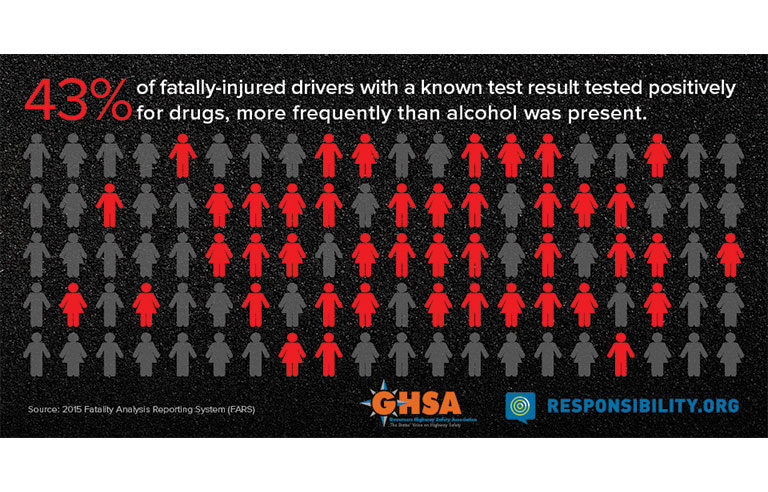New report, grants seek to curb drug-impaired driving

Washington – With drug overdoses on the rise and marijuana legalization becoming more prevalent, the Governors Highway Safety Association and the Foundation for Advancing Alcohol Responsibility (Responsibility.org) have updated their 2015 report concerning drug use on America’s roads.
Drug Impaired Driving: A Guide for States contains the most recent research, data, state laws and programs, and information from more than 30 additional research studies.
The report recommends that states form task forces on drug-impaired driving to gather accurate and timely data.
“As states across the country continue to struggle with drug-impaired driving, it’s critical that we help them understand the current landscape and provide examples of best practices so they can craft the most effective countermeasures,” Jonathan Adkins, executive director of GHSA, said in a press release.
To aid with one of the report’s recommendations, Responsibility.org also announced $100,000 grants for the Illinois, Montana, Washington, West Virginia and Wisconsin highway safety offices to implement Advanced Roadside Impairment Driving Enforcement training and Drug Recognition Expert programs.
“As drunk driving has declined, drugged driving has increased dramatically and many of today’s impaired drivers are combining two or more substances, which has a multiplicative effect on driver impairment,” Ralph. S. Blackman, president and CEO of Responsibility.org, said in a press release. “We are pleased to partner with GHSA to fill a critical gap. These training grants will prepare law enforcement to detect drug-impaired drivers and make roads safer for us all.”
Data from 2015 (the most recent year for which data is available) shows that drugs played a role in 43 percent of driver fatalities with known test results – a higher rate than fatalities involving alcohol.
Post a comment to this article
Safety+Health welcomes comments that promote respectful dialogue. Please stay on topic. Comments that contain personal attacks, profanity or abusive language – or those aggressively promoting products or services – will be removed. We reserve the right to determine which comments violate our comment policy. (Anonymous comments are welcome; merely skip the “name” field in the comment box. An email address is required but will not be included with your comment.)

